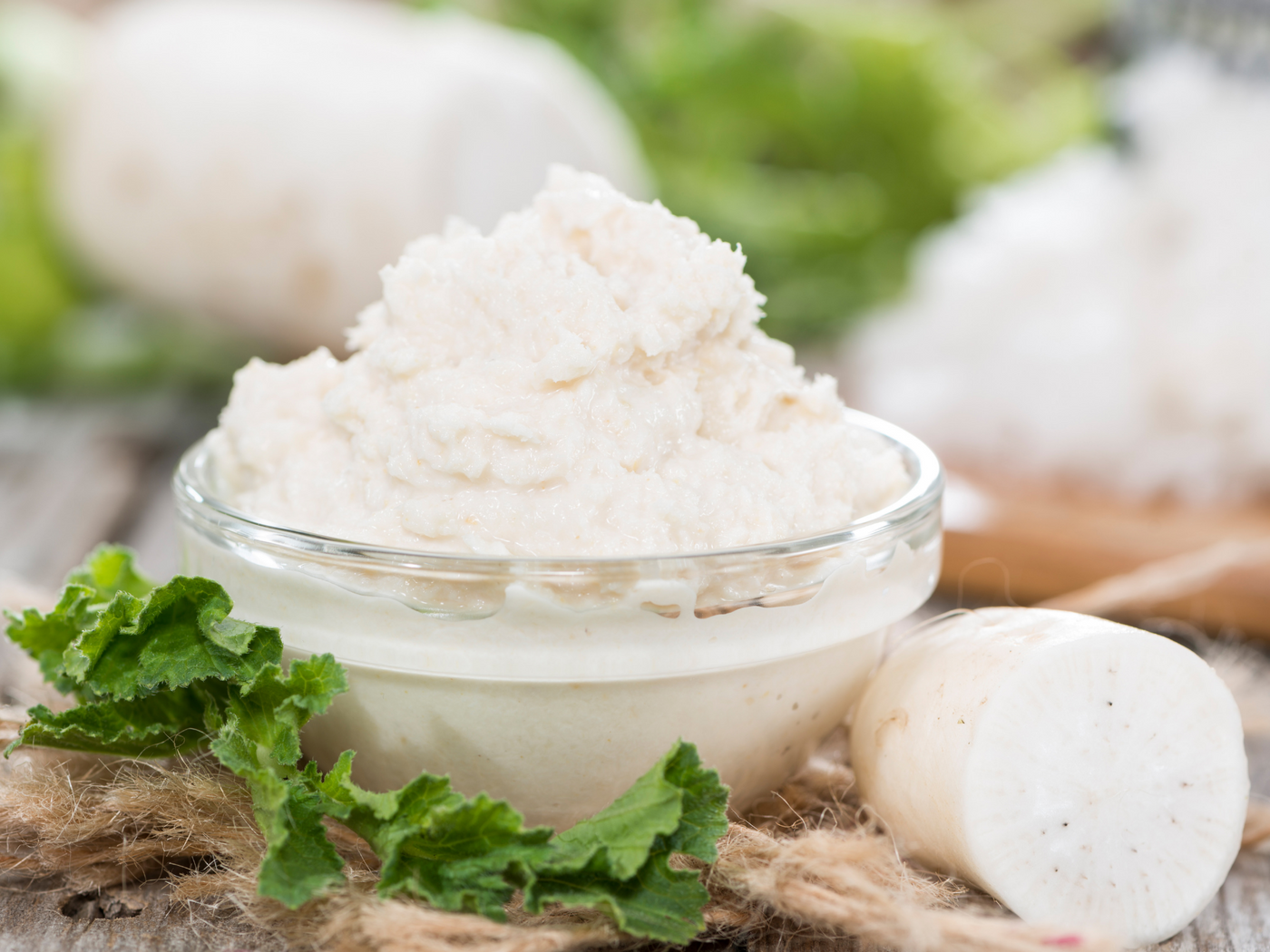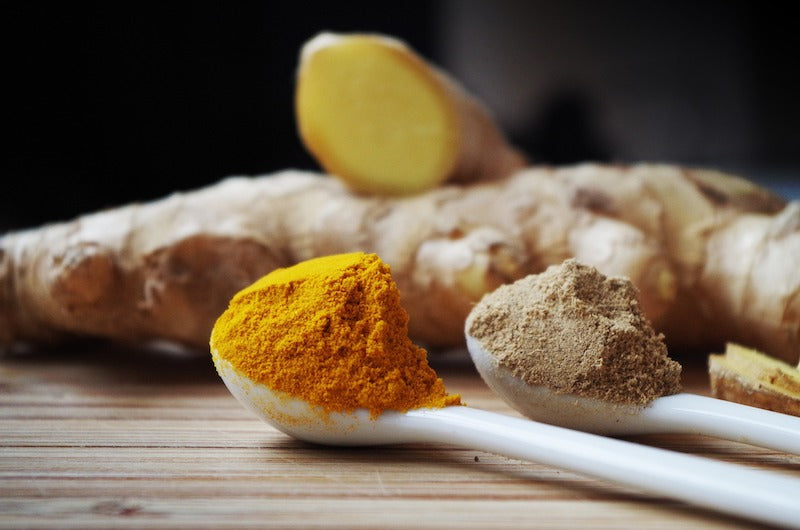Fibro Fix Blog

Circadian Rhythms and Melatonin Go Hand-in-Hand 0
Melatonin’s effect on the suprachiasmatic nuclei can help entrain circadian rhythms and decreased melatonin production reflects the circadian system.- David Brady
- Tags: circadian rhythms melatonin sleep weight loss

Horseradish – The Potent, Pungent Root Vegetable 0
Horseradish is similar to garlic, another sulfur-containing food that has numerous medicinal properties including anti-inflammatory properties.- David Brady
- Tags: anti-inflammatory health benefits Horseradish vitamin c

The “Eyes” Have It: Fish Oil for Eye Health 0
These days, you can’t pick up a health magazine or nutrition book and not find someone singing the praises of fish oil. From supporting cardiovascular health and a normal inflammatory response, to supporting healthy brain function and keeping the skin supple and hydrated, there’s certainly no shortage of feathers in fish oil’s cap. Eating oily fish as a whole food is a great option, since it comes with complete protein and other helpful nutrients, but many of the benefits that come from eating fish are primarily due to the omega-3 fatty acids found in the fat – specifically, eicosapentaenoic acid and docosahexaenoic acid, EPA and DHA for short.
Fish oil is well known for helping conditions associated with the body’s natural inflammatory process. (Think of good quality fats as oil being added to rusty machine parts to help them work more smoothly.) One of the lesser-known properties of fish oil is that it may be good for eye health. Occasional inflammation in the eyes may interfere with the production of tears and other eye lubricants, both in quantity and chemical composition. Tears aren’t just water and salt; they contain an oily layer, which prevents them from evaporating too quickly and leaving someone with excessively dry eyes.
Dry eye syndrome, or “dry eyes,” has been the unfortunate victim of somewhat comical ads for prescription and over-the-counter eye drops and artificial tear products. To people living with the condition, however, it’s no laughing matter. It can cause mild to moderate discomfort, and more severe cases may interfere with work and reduce overall quality of life. Studies support a role for EPA and DHA in aiding this condition.
The incidence of dry eyes is lower in populations consuming large amounts of omega-3 fats, and is higher in populations with a high omega-6 to omega-3 ratio. In one trial that investigated the effects of fish oil supplementation in individuals with dry eyes, compared to placebo, subjects taking fish oil (1245mg EPA and 540mg DHA per day) for 12 weeks experienced small but notable improvements in subjective eye pain and dry sensation. Aside from dietary supplementation, topical application of omega-3 fatty acids via eye drops may be another way to introduce these helpful compounds into the eyes. Experiments employing mouse models of dry eye indicate that eye drops containing a mixture of omega-3s and hyaluronic acid improved corneal function and decreased inflammation and oxidative stress markers on the surface of the eyes.
Another eye health concern for which fatty fish consumption or fish oil supplementation may be beneficial is age-related macular degeneration (AMD). Compared to healthy controls without AMD, AMD patients consume significantly lower amounts of oily fish. Amounts of EPA and DHA measured in blood and the cell membranes of red blood cells (a good way to assess body levels of these fats) showed that higher amounts of these fats in the blood and cell membranes were associated with significantly lower risk for AMD, independent of potentially confounding factors, such as high triglycerides, hypertension, and family history of AMD.
Okay, sounds great! But what if you don’t like fish? Are you doomed to the adult equivalent of when you were forced to choke down soggy, overcooked Brussels sprouts at the dinner table as a kid? Do you have to eat fish to get these benefits? No: fish oil capsules to the rescue! But what about those “fishy burps” that scare people away from taking fish oil supplements? Fortunately, many high-quality fish oils are now available that are designed to reduce the risk of the fishy flavor “repeating” on you.
For vegetarians and vegans, who may find it difficult to get adequate EPA and DHA from the selection of foods available to them, the omega-3 fat, alpha-linolenic acid (ALA, found in flax, chia, and walnuts) has also been shown to be beneficial in animal models of dry eye. However, because many people do not efficiently convert ALA into the more potent EPA and DHA, it may be best to prefer eating fish or taking fish oil, but if those are not options, plant-based omega-3s are still a good choice.
Sources
- Liu A, Ji J. Omega-3 Essential Fatty Acids Therapy for Dry Eye Syndrome: A Meta-Analysis of Randomized Controlled Studies. Medical Science Monitor: International Medical Journal of Experimental and Clinical Research. 2014;20:1583-1589.
- Miljanović B, Trivedi KA, Reza Dana M, Gilbard JP, Buring JE, Schaumberg DA. The relationship between dietary n-3 and n-6 fatty acids and clinically diagnosed dry eye syndrome in women. The American journal of clinical nutrition. 2005;82(4):887-893.
- Kawakita T, Kawabata F, Tsuji T, et al. Effects of dietary supplementation with fish oil on dry eye syndrome subjects: randomized controlled trial. Biomed Res. 2013;34(5):215-20.
- Merle BM, Benlian P, Puche N, et al. Circulating omega-3 Fatty acids and neovascular age-related macular degeneration. Invest Ophthalmol Vis Sci. 2014 Mar 28;55(3):2010-9.
- David Brady
- Tags: cardiovascular dry eyes eye health fish oil inflammation omega-3 fatty acids

Spotlight on the Plant Compound Berberine 0
As the incidence of health issues related to insulin resistance and carbohydrate sensitivity continues to skyrocket, we need all the tools we can get to help improve the health of people affected by these multifaceted conditions. Something receiving increased recognition for its impressive efficacy in affecting multiple parameters of metabolic health is a bitter, yellow plant extract called berberine. Berberine is so effective, in fact, that studies have shown it to be at least as effective as the commonly prescribed drug, metformin, for helping improve glycemic control.
Health issues related to insulin resistance are often accompanied by elevated fasting blood sugar and insulin levels, elevated hemoglobin A1c (a longer-term marker for blood sugar control), elevated post-meal blood sugar, elevated LDL-cholesterol, and elevated blood fats (triglycerides). Berberine has shown promise in affecting all of these factors, without some of the unpleasant side-effects of pharmaceutical drugs.1,2,3 These effects are quite significant, and berberine may be especially helpful for people whose blood sugar woes remains poorly controlled, despite a healthy diet, exercise, and an appropriate medication regimen. For those who are doing “all the right things,” but still don’t experience the expected improvements in health, berberine might be a powerful ally. Of course, these individuals need to work with their doctors when adding berberine to their nutrition regimens.
As for how berberine exerts these effects, there are multiple mechanisms. One of them is that berberine may help the body secrete more insulin and also use that insulin more effectively. Besides aiding the body in producing more insulin, berberine also helps to increase the amounts and efficiency of insulin receptors. Insulin can only do its job of escorting glucose into the cells when there are properly functioning insulin receptors available to receive it. So, berberine may support better glycemic control on two fronts: enhancing production of insulin, as well as facilitating proper usage of the hormone.
Another way berberine may help with carbohydrate intolerance is by inhibiting the action of some of the intestinal enzymes involved in digesting carbohydrates. In animal studies, berberine has been shown to reduce the duration of elevated blood sugar after the animals were dosed with sucrose and maltose—two types of sugar that are broken down in the small intestine.
Aside from its powerful effects on glycemic control, berberine has also demonstrated the ability to favorably impact blood lipids (cholesterol and triglycerides). Unlike statin drugs, however, berberine does not affect the complex pathway by which the body produces cholesterol internally, and therefore, does not present the many undesirable side-effects linked to statins.
The way berberine may help reduce LDL is similar to the way it helps insulin work better—it helps to increase the expression of LDL receptors. Like insulin, LDL particles can’t perform their function of delivering cholesterol to cells unless there are functional LDL receptors on which they can “dock,” like a ship arriving in a port to deliver cargo.
As mentioned earlier, it is important for individuals to work closely with their doctors and health care practitioners when considering such compounds as berberine. Opening the line of communication with practitioners is the key in addressing one’s health in a comprehensive and educated way.
Sources
- Yin J, Xing H, Ye J. Efficacy of berberine in patients with type 2 diabetes mellitus. Metabolism. 2008 May;57(5):712-7.
- Zhang H et al. Berberine lowers blood glucose in type 2 diabetes mellitus patients through increasing insulin receptor expression. Metabolism. 2010 Feb;59(2):285-92.
- Zhou JY et al. Chronic effects of berberine on blood, liver glucolipid metabolism and liver PPARs expression in diabetic hyperlipidemic rats. Biol Pharm Bull. 2008 Jun;31(6):1169-76.
- David Brady
- Tags: berberine insulin insulin control LDL Type 2 diabetes


